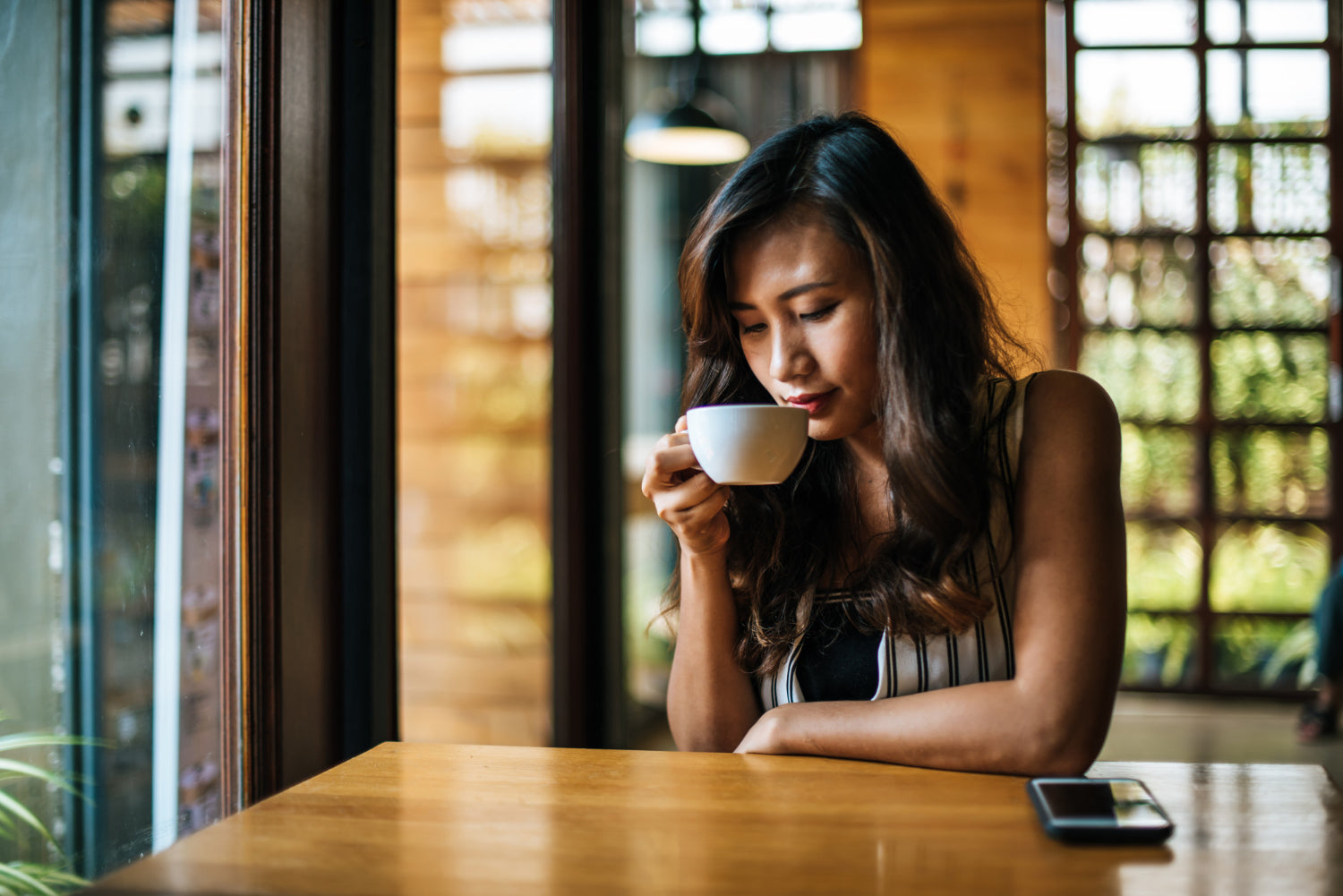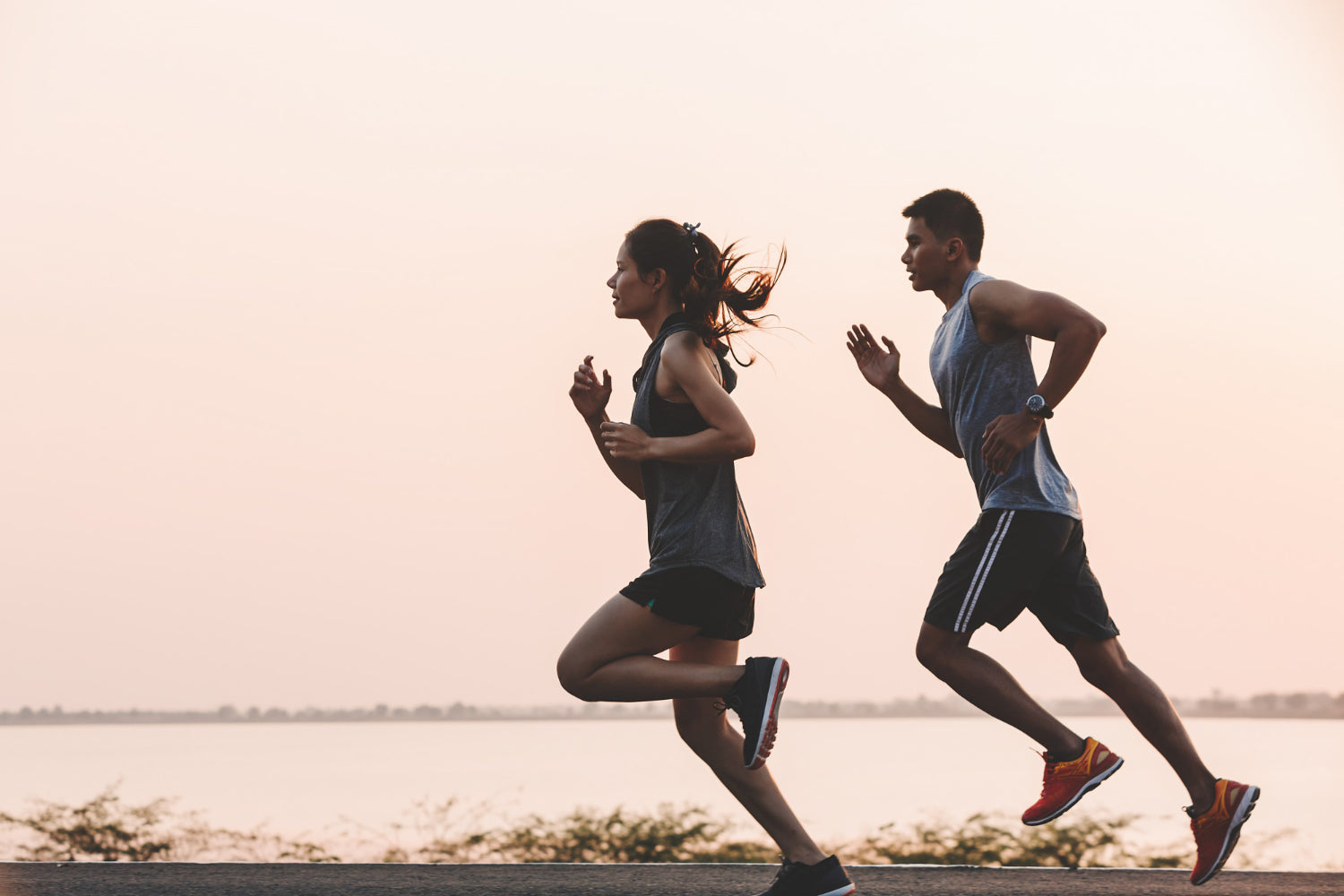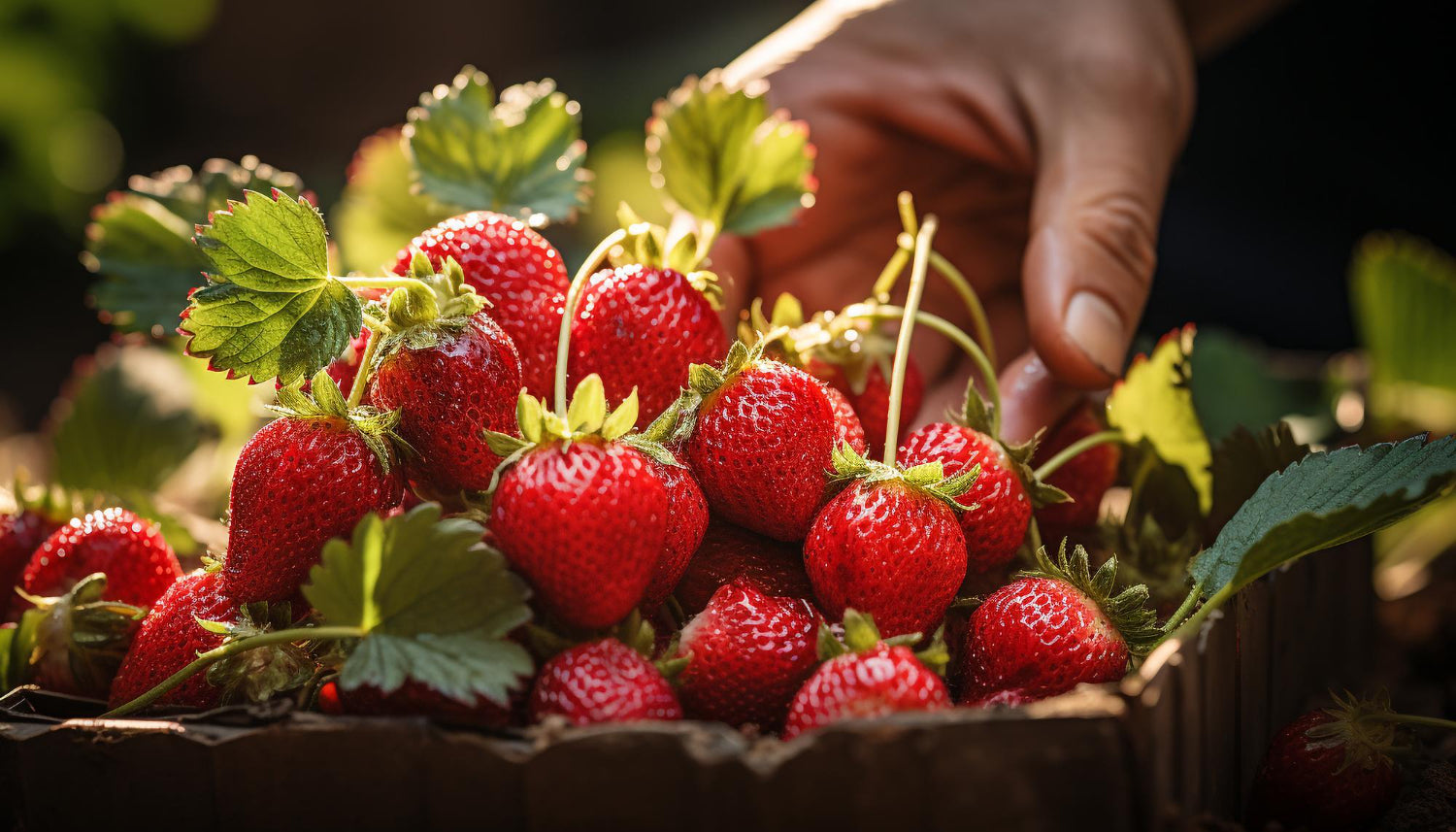We’re all familiar with coffee’s perk-up powers, but what you might not know is that this beloved bean could help you combat depression.
In 2020, Dr. Alan Leviton, a neurologist at Harvard, published a review of over 100 studies, which collectively involved a participant pool of over 300,000.[*] His analysis revealed a compelling pattern: habitual coffee drinkers have a lower likelihood of depression than those who don’t indulge in this popular beverage.
But what’s the connection, and what does this mean for you? Keep reading to uncover the intriguing links between your daily cup of joe and your mental well-being.
What’s in a Cup? A Brief Overview of Coffee
Coffee is a drink made from the seeds (aka coffee beans) of the Coffea plant, which are harvested, processed, and roasted to varying degrees depending on the desired flavor profile. When ground and brewed with hot water, these beans yield a complex and aromatic liquid that we know and love as coffee.
This brew contains several compounds, some of which include:
- Caffeine: The most well-known psychoactive ingredient, caffeine stimulates the central nervous system, warding off drowsiness and fostering alertness.
- Antioxidants: Coffee is rich in antioxidants like chlorogenic acids, which can help reduce internal inflammation and protect against disease.
- Diterpenes: Compounds called diterpenes, which include cafestol and kahweol, are found in coffee oils and have been shown to have anti-inflammatory and antioxidant effects.
- Melanoidins: Formed during the roasting process, melanoidins are responsible for coffee’s rich brown color and contribute to its full-bodied flavor and antioxidant properties.
- Vitamins and Minerals: Coffee beans contain several essential nutrients, including magnesium, potassium, niacin, and riboflavin.
Is Coffee an Antidepressant? A Look at the Research
In addition to Dr. Leviton’s review mentioned earlier, there is plenty of other research pointing to coffee’s antidepressant effects:
- A 2014 study involving more than 200,000 people showed that drinking coffee was linked to a lower risk of death by suicide.[*]
- A 2016 review of seven studies involving a combined total of over 330,000 people found that each cup of coffee people drank daily was linked to an 8% reduced risk of depression.[*]
- A 2018 study found that drinking at least four cups of coffee daily was associated with a significantly reduced risk of depression compared with drinking just one cup daily.[*]
How Does Coffee Reduce the Risk of Depression?
While we don’t definitively know how coffee reduces depression, there are many possible connections:
- People with depression tend to have lower levels of antioxidants in their blood.[*] Regular coffee consumption increases the levels of circulating antioxidants.
- Some research suggests that low-level brain inflammation could contribute to depression symptoms.[*] Coffee combats inflammation.[*]
- Caffeine has been shown to block a chemical in the brain called adenosine that can make you feel depressed.[*][*]
- Caffeine enhances dopamine signaling in the brain.[*] Dopamine is a neurotransmitter that plays a role in pleasure, motivation, and learning.
- Compounds in coffee are believed to have a positive effect on the bacteria in your gut.[*] And emerging research suggests that a more balanced gut microbiome may be linked with lower incidences of depression.[*]
Does Coffee Cause Anxiety?
You might be thinking, “Okay, great, coffee may help reduce my risk of depression—but what about anxiety?” It’s a valid concern, given that the jitters we associate with too much caffeine can feel a lot like the symptoms of anxiety.
Both of these reactions are processed through the body’s sympathetic nervous system, which is in charge of our fight-or-flight response. This is the body’s built-in alarm system, designed to alert us to danger and ready our response—whether that’s to confront the threat or flee.
When this system is activated, whether due to a stressful situation or the stimulating effects of caffeine, it can lead to an increased heart rate, heightened alertness, and a surge of adrenaline.
However, while caffeine can temporarily invoke these feelings, current research does not support the idea that caffeine causes clinical anxiety disorders, such as panic disorder or generalized anxiety disorder. These are more severe, chronic conditions that persist beyond the presence of caffeine in the system.
That being said, those who are prone to anxiety or who have been diagnosed with an anxiety disorder may find that caffeine temporarily exacerbates their symptoms.[*] As such, it’s essential to consider personal sensitivity to caffeine and, if necessary, adjust consumption to mitigate any unpleasant effects.
How Much Caffeine is Safe and Beneficial?
Too much of anything is bad for you (even water), so what’s the sweet spot for caffeine consumption? Good news, coffee lovers: it’s likely more than you think!
The general guideline for caffeine intake is up to 400 milligrams daily for healthy adults.[*] That’s roughly the amount of caffeine in four 8-ounce cups of coffee or two sticks of IQJOE instant coffee.
Keep in mind, however, that personal tolerance to caffeine can differ greatly from person to person. Factors such as age, existing medical conditions, and natural sensitivity can influence how caffeine affects you.
What Kind of Coffee Is Best for Depression?
There are lots of types of coffee out there, so are any better for depression than others? Meet IQJOE, an instant coffee crafted with intention, blending the beloved perks of traditional Brazilian coffee with additional cognitive enhancers.
Each on-the-go packet contains:
- 200 mg of natural caffeine
- 250 mg 8X-concentrated lion’s mane mushroom extract
- 750 mg Magtein® (magnesium L-threonate)
Magnesium and lion’s mane, both of which have been researched for their role in brain health and mood regulation, may also have antidepressant effects.[*][*] Combined with the antidepressant effects of coffee, these ingredients may synergize to bolster the mood-lifting potential of your daily brew.
🙌🏼 Bonus? The magnesium and lion’s mane may temper the effects of the caffeine, reducing or ridding of uncomfortable caffeine side effects like jitters.
⚡️Simply pour one packet of IQJOE into 8-12 oz hot water, stir until dissolved, and receive a jitter-free, crash-free, long-lasting energy boost!
☕️IQJOE comes in four flavors: Original Black, Vanilla Spice, Toasted Hazelnut, and Caffè Mocha. Not sure which flavor to choose? Try our 16-Stick Variety Pack to find your favorites!
A Final Word on Coffee and Depression
It’s clear that our humble cup of joe may be a valuable tool in the mental health toolkit. But let's not forget, it's just one component of a holistic approach to wellness.
Combining the mood-lifting potential of coffee like IQJOE with a balanced diet, regular physical activity, and the cultivation of strong social ties can create a synergistic effect that further enhances your mental well-being.
Written by Katie Koschalk, a health and wellness writer, certified holistic nutritionist, and certified personal trainer based in California.




